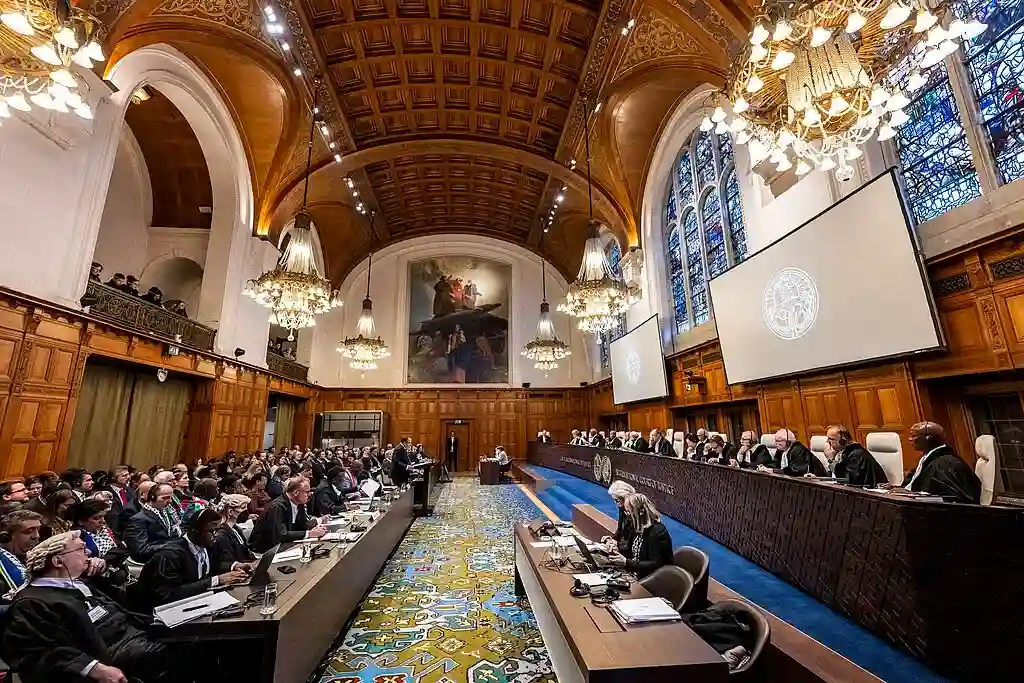ICJ rules Israel must prevent genocide and aid civilians, but denies ceasefire request.

The International Court of Justice (ICJ) ruled on Friday that Israel must prevent genocide against the Palestinians and provide more humanitarian aid, but did not order a ceasefire as South Africa had requested.
The ruling was a mixed outcome for both sides, as it rejected the Palestinians’ plea for an immediate end to the war in Gaza, but also challenged Israel’s attempt to dismiss the case based on the genocide convention created after the Holocaust.
The court said there was enough evidence to examine whether Israel was violating Palestinian rights in a war that had caused severe humanitarian damage. It also urged Palestinian militants to free the hostages they took in the Oct. 7 raids on Israel that sparked the conflict.
The Palestinian Foreign Ministry welcomed the decision as a reminder that “no state is above the law”. A senior Hamas official, Sami Abu Zuhri, told Reuters the decision would help to “isolate the occupation and expose its crimes in Gaza”.
Israeli Prime Minister Benjamin Netanyahu said the court had “rightly rejected the absurd demand” to deny Israel what he called the “basic right to defend itself”, by ordering it to stop fighting. “But the mere accusation that Israel is committing genocide against Palestinians is not only false, it’s outrageous, and the court’s willingness to even consider it is a disgrace that will not be forgotten for generations,” he said.
Israeli Security Minister Itamar Ben-Gvir dismissed the ruling in a brief social media post with a Yiddish-style insult: “Hague shmague”.
Israel had tried to get the case thrown out when it was brought to the ICJ earlier this month. South Africa claimed that Israel was conducting state-led genocide in its attack, which started after Hamas militants invaded Israel killing 1,200 and abducting more than 240.
It asked the court to issue urgent measures to stop the fighting, which has claimed more than 26,000 Palestinian lives and displaced most of the population in a more than three-month campaign of heavy bombardment.
The ICJ judges instructed Israel to do everything in its power to stop its soldiers from committing genocide, punish those who incited violence, improve the humanitarian situation and report back on its actions in a month. It did not rule on the validity of the genocide claims, which could take years.
The ruling is not subject to appeal, but the court has no way to enforce its decision. In announcing the decision, ICJ President Judge Joan Donoghue described the suffering of Palestinians in Gaza, highlighting the harm to children and citing detailed reports of the humanitarian crisis from U.N. officials.
She said this justified the court’s decision to take emergency action to prevent irreparable harm. She also quoted several statements from Israeli officials calling for a harsh campaign, which she said justified the court’s instruction to Israel to punish those who incited violence.
Israel denounced South Africa’s claims as false and “grossly distorted”. It says it acted in Gaza in self defence against an enemy that attacked first, and holds Hamas responsible for harming civilians by operating among them, which the militants deny.
The South African government, which brought the case under the legal principle that genocide is such a serious crime that all countries have a duty to prevent it, praised the court order as a “decisive victory” for international rule of law.
The European Union echoed South Africa in saying it expected Israel to comply with the court’s orders without delay and in full.







